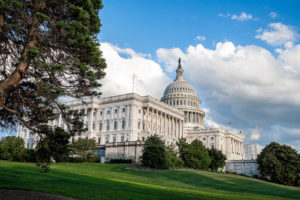Forever altered by the pandemic, consumer behaviors have shifted with an emerging focus on values. Mainstream appeal highlighted throughout recent brand campaigns demonstrates that consumers are looking to connect with brands that align with their own value systems and beliefs.
Throughout the past 8 years, the link between consumer preferences and brand purpose has increased dramatically according to the Ipsos Global Trends 2021 Report. Trends do not show a slow-down in the impact of value alignment between brands and consumers.
Understanding today’s consumer focus on central issues is key to developing a values-based strategy. After a culmination of ambiguity after the pandemic, consumer awareness brought foundational issues to the forefront.
The fragility of today’s planet, geopolitical tensions, growing inequality, and opportunity, along with technology and data became the heart of heated debates for consumers. Which companies are taking an affirmative stance for or against specific issues? Which brands can I support based on alignment with my values and beliefs? Cited in the Ipsos Global Trends 2021 Report, there’s continuity in value themes based on climate, purpose, and health. The change in 2021 indicated a greater emphasis on brand purpose, globalization, and acclimation between an online/offline world.

According to Hotwire Global, “data supports that 82% of consumers would consider leaving brands associated with a partner or supplier who handled a high-stakes issue in a way that violated their values.” The relevancy of what consumers want is driving the need for strategic business shifts.
The Edelman Trust Barometer 2021 Report found similar insights. During the recent era of distrust, fear and anxiety brought a heightened level of alertness among the public. Healthcare, education, climate change, discrimination, and racism were included among consumers’ foundational concerns.
As a result, CEOs took this as their call-to-action indicator. How can we regain a level of trust with our consumers? How can we become competent and ethical guardians with institutionalized values in our business framework? To answer these questions, C-level executives and boards began to prioritize:
- Consumer sentiment
- Values-based pillar structure
- Value alignment among target audience
- Strategic plan development including comprehensive messaging
- Implementation of marketing initiatives to demonstrate value alignment
- Outreach to stakeholders (consumers, employees, investors) to receive feedback on brand trust and value connectivity

So, what is the correlation behind consumer sentiment and value-aligned brands?
According to Toluna’s Global Barometer, research suggests that two-thirds of global consumers feel a sense of satisfaction and emotional comfort when making socially responsible choices. As a result, many corporate leaders are leaning into ESG tools to help overcome global challenges and to ensure that their businesses are contributing to society at large.
The World Economic Forum’s white paper, The Future of the Corporation: Moving from balance sheet to value sheet, provides practical guidelines to create governance frameworks to enable value-alignment.
By developing a forward-thinking board with an intentionality, companies are better equipped to tackle purpose, strategy, culture and values, fiduciary duties, board composition and effectiveness, stakeholder engagement, engagement with shareholders/investors, incentives, ESG KPIs (Key Performance Indicators) and transparency and reporting. The use of ESG tools helps companies prioritize critical issues that matter to consumers the most.

“Brands that deliver on purpose, that drive a culture of sustainable innovation, are the front runners in consumers’ eyes – and they’re watching,” says Cristianne Close, Global Markets Practice Leader, WWF International.
Not only are value-based frameworks beneficial to businesses, but they too will make an economic impact on the long-term trajectory for sustainability.
The World Economic Forum’s New Nature Economy Report II: The Future of Nature and Business suggests that businesses may be able to tap into $10.1 trillion in business opportunities if they focus on nature-positive action. They predict that if businesses prioritize sustainability (nature), 395 million new jobs will be created by 2030.
“As we enter into a historic decade of action to halt and reverse biodiversity loss by 2030 and address climate change, business has a critical role to play in environmental stewardship of our planet,” said Inger Andersen, United Nations Under-Secretary-General and Executive Director of the UN Environment Programme. “They have the technology, innovation and financing to make the shifts we need towards increased investment in nature’s infrastructure and nature-based solutions.”
The globalization of consumer values is bringing brand connectivity to the forefront. Companies are faced with an urgent need to hear and address consumer sentiment.
Based on today’s transition and heightened alertness towards value-based decision making, brands need to take an affirmative stance. By not only asking for consumer sentiment and acting upon what they hear, companies will start falling behind the curve.
ESG tools and strategic frameworks are enabling CEOs and boards to consider value-alignment as a business must-have. So, what’s our prediction? Value-aligned brands will be better positioned to experience business growth. With public policy and globalization trends, we all will be watching brand connectivity explode in the coming years.




